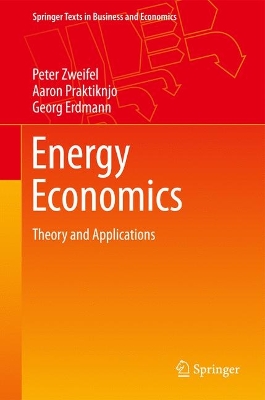Springer Texts in Business and Economics
2 total works
"Winner of the 2014 Kulp-Wright Book Award Presented by the American Risk and Insurance Association".
More information can be found here:
http://www.aria.org/awards/bookawards.htm
Insurance Economics brings together the economic analysis of decision making under risk, risk management and demand for insurance by individuals and corporations, objectives pursued and management tools used by insurance companies, the regulation of insurance, and the division of labor between private and social insurance. Appropriete both for advanced undergraduate and graduate students of economics, management, and finance, this text provides the background required to understand current research. Predictions derived from theoretical argument are not only stated but confronted with empirical evidence. Throughout the book, conclusions summarize results, helping readers to check their knowledge and understanding. Issues discussed include paradoxa in decision making under risk, selection of favorable risks by insurers, the possibility of a "death spiral" in insurance markets, and future challenges such as re-regulation in the wake of the 2007-09 financial crisis and the increasing availability of generic information.
This book provides an introduction to energy economics. It shows how to apply general economic theory as well as empirical and advanced econometric methods to explain the drivers of energy markets and their development. Readers learn about the specific properties of energy markets as well as the physical, technological, environmental, and geopolitical particularities of energy sources and products. The book covers all types of energy markets, ranging from liquid fuels, gaseous fuels, and solid fuels to electricity. It also addresses emission allowances, energy efficiency, and nuclear risks. The authors discuss the engineering properties of energy technologies including renewables, the economics of natural resources and environmental protection, market liberalization, and energy trade as well as the experience of the German energy transformation. This book will serve students as a textbook and practitioners as a reference for their understanding of energy markets and their development.

